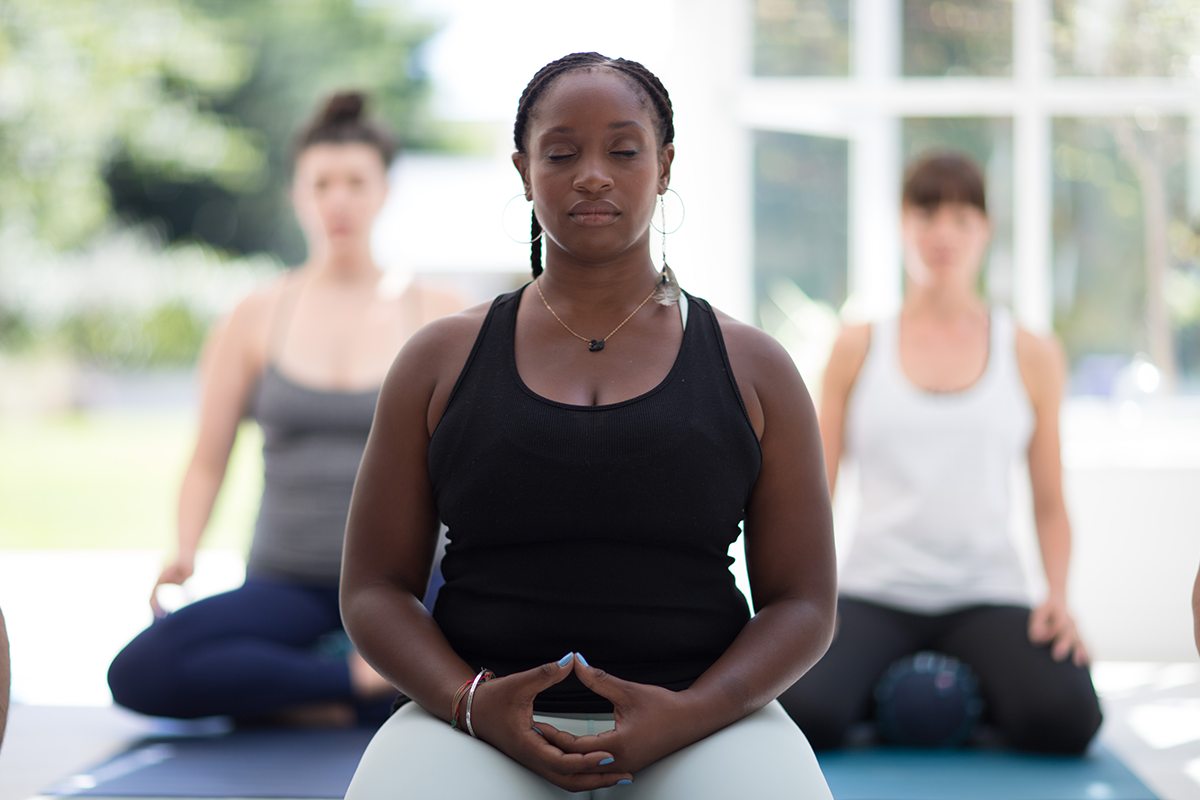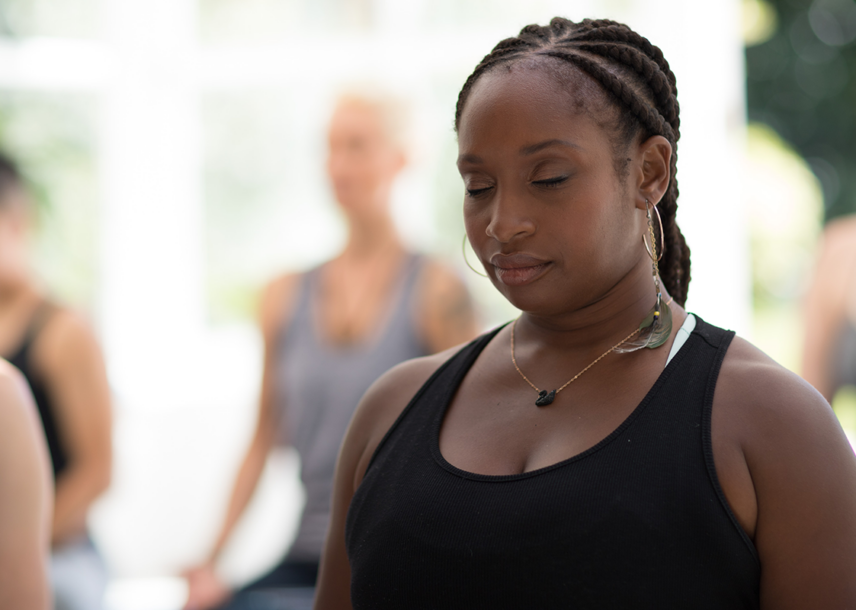Last summer, I witnessed a lot of people, spaces, and brands in the yoga and wellness community posting black squares in connection to the murder of George Floyd and the Black Lives Matter Movement. In contrast, too, a lot of folks made no mention of it and instead of reacting or showing allyship to people who were generating dialogue on anti-racism, they stayed silent and took no action – as if nothing had taken place.
It’s been a year and the question I have now is: where is everyone on their anti-racism journey? Are the people that posted the black squares still doing the anti-racism work? Have the folks that were silent engaged with it at all? Has the thought leadership on racism paused?
As a black woman a lot of my experiences while I was practicing, training, and teaching were affected by racism and anti-Blackness. My very existence in yoga and wellness spaces was always in question. What was happening in dominant culture was playing out in spaces where I was coming to connect, heal, and liberate myself and guide folks through their practice. In an industry where phrases like “we are one,” “good vibes only,” and “love and light” are constantly referenced. Simultaneously, so many other Black and Brown people were having an experience that is often not acknowledged, ignored, denied, or they are belittled for bringing it up.
It must be acknowledged that a lot of us have come to practice yoga through the gateway of asana, which is a very physical and personal experience. We begin on our mats navigating our way through the postures with our breath and all of our experiences and identities. It is very oriented to the individual, but in reality yoga is a practice of social justice. The practice creates expansion so we can begin to engage with bigger societal issues.
For those who want to do the work of antiracism but perhaps do not know how to start or how to continue, here are three points I’d like to offer to help do this work effectively:
How to work towards ending racism
Each and every one of us has a part to play in dismantling this oppressive system. It is the responsibility of all of us to end racism. It’s not solely on Black people to do the work to end racism; that is impossible. This process will also take time and we can only hope that we can end racism in our lifetime. It takes every one of us to say no more whether we are having a personal experience of racism or we are learning about it through others. We all have ways in which we participate in the system and it’s important to remember that everyone in the world has been shaped by systemic racism – it’s ingrained in our society. We must use the practice of self-study to identify the spaces in our lives where we participate so we can begin to dismantle. We will all have different work to do and will engage in that work from different social locations and points of privilege. Something to remember is this work will be hard, uncomfortable, and messy; we will make mistakes. This doesn’t mean we aren’t ready. It simply means we are human.

How to be accountable for racist behaviour in your everyday life
Once we take responsibility and commit to being antiracist, we have to be held accountable to our commitments. There has to be a feedback mechanism around our intentions and the impact they have. We have to set up systems that recognise when harm occurs and have ways to repair the harm. It’s not enough to post a black square on social media, make statements around your commitments, and then show no pathway to delivering them. If you made commitments, have you kept them? If not, why not? Accountability starts with you and is not a one-time thing. Through accountability, results and shifts in culture are possible.
How to connect with the BIPOC community and support anti-racism
The work of antiracism or the act of dismantling racism has to be done in community. Yes, a lot of us started on our mats doing asana and it was a deeply personal experience. Many of us will have started to do our antiracism work the same way; on our own. However, the practice of yoga doesn’t only offer personal liberation; it offers collective liberation. Through our personal responsibility we call on the community to help hold us accountable for our commitments. Through community we are affirmed, supported, and witnessed. We are held in the truth that this work should not be done alone and was never meant to be. We are supported as we get it wrong, when things get difficult, and messy.
Through our personal work in collaboration with our community, we can be the change we want to see. It’s not easy, and we do it anyway, because racism hurts and oppresses everyone; it keeps us all from living in our fullness.
Join a diverse and inclusive yoga teacher training: Radical Darshan
Want to make your yoga practice or yoga teacher offering more diverse and inclusive? Sign up for the Radical Darshan 300-hour YTT. Apply now to book your spot.


